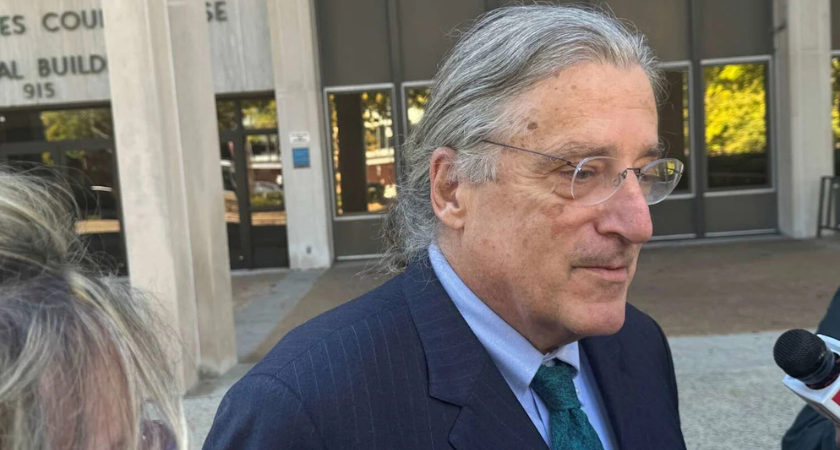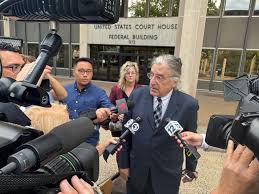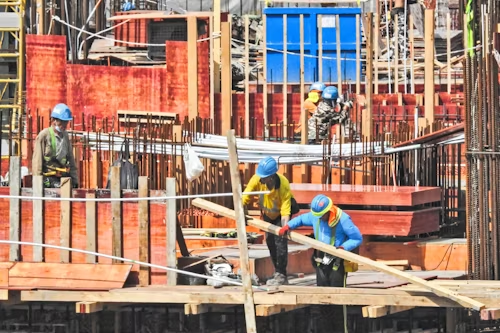
The high-profile federal felony trial of former Connecticut school construction director Konstantinos “Kosta” Diamantis entered its second week on Tuesday, drawing closer scrutiny into allegations of corruption surrounding millions in taxpayer-funded projects.

At the center of the case is Diamantis, a 69-year-old lawyer and former state legislator, who prosecutors say steered lucrative contracts to favored firms in exchange for cash payments between 2018 and 2021 while serving as head of the state Office of School Construction Grant Review (OSCGR). He faces up to 20 years in prison if convicted.
Court proceedings resumed Tuesday morning with defense attorney Norman Pattis set to cross-examine John Butkus of Arcadis, an international design and engineering firm that has long partnered with O&G Industries on Hartford school projects. Pattis is expected to focus on a March 2020 bidding controversy at Hartford’s Bulkeley High School.
The construction firm Construction Advocacy Professionals (CAP) initially submitted a $2.3 million bid for the project, but the figure was reduced by nearly half a million dollars over the weekend after bids were opened. This sudden revision has been central to prosecutors’ claims of improper influence in the bid process.
Last week, CAP owner Antonietta Roy testified that she paid Diamantis roughly $4,500, a mix of checks and cash she said was handed to him through the open window of his car in Hartford. Roy, who has already pleaded guilty and is cooperating with the government, admitted she also fired Diamantis’s daughter Anastasia—who had been working a $45-per-hour part-time job—after Diamantis was terminated by Gov. Ned Lamont in October 2021.
Prosecutors have painted a broader picture of financial favors and favoritism. They allege that Salvatore Monarca, owner of Middlebury masonry firm Acranom (named after his last name spelled backwards), secured millions in school construction contracts thanks to Diamantis.
Acranom’s former vice president, John Duffy, testified last week that the company funneled tens of thousands of dollars to Diamantis in exchange for help with contracts and assistance settling a $300,000 dispute over earlier work at Weaver High School. Both Monarca and Duffy have also pleaded guilty.
The trial is expected to hear from several state and municipal officials this week, including Hartford building official Frank Dellaripa and Michelle Dixon, a manager in the OSCGR.
Gov. Ned Lamont himself has been subpoenaed by the defense to testify later this month. Pattis indicated he may call the governor on October 21, arguing that Lamont’s decision to fire Diamantis is relevant to the defense case.
Other witnesses scheduled to appear on behalf of the defense include Luke Bronin, the former mayor of Hartford; Leslie Torres-Rodriguez, former superintendent of Hartford Public Schools; Stavros Mellekas, a retired state police colonel; and Robert Celmer, a University of Hartford engineering professor.

Evidence from the first week of the trial highlighted instances where Diamantis allegedly pressured contractors. Prosecutors say Monarca initially resisted making payments until Acranom secured a contract for the rebuilding of Birch Grove Primary School, which had been approved for emergency reconstruction due to crumbling foundations.
The prosecution has also presented texts and emails showing a close personal relationship between Diamantis and Acranom executives, with Duffy and Diamantis addressing each other as “uncle.”
Despite the testimony, Diamantis has firmly denied wrongdoing. Pattis, known for his fiery courtroom style, has framed his client as a political target. After one cross-examination last week, Pattis remarked to reporters, “I thought I was extremely polite and gentle,” before joking about having called a witness “liar, liar pants on fire” in front of the jury.
Prosecutors are expected to rest their case by mid-week, after which Pattis will begin presenting the defense. Diamantis himself is slated to take the stand as the first defense witness, potentially as soon as Wednesday or Thursday.
The trial, presided over by U.S. District Judge Stefan Underhill in Bridgeport, has become one of Connecticut’s most closely watched corruption cases in years, touching on politics, education, and construction industries that handle hundreds of millions of state dollars annually.
Originally reported by Ken Dixon in Yahoo News.